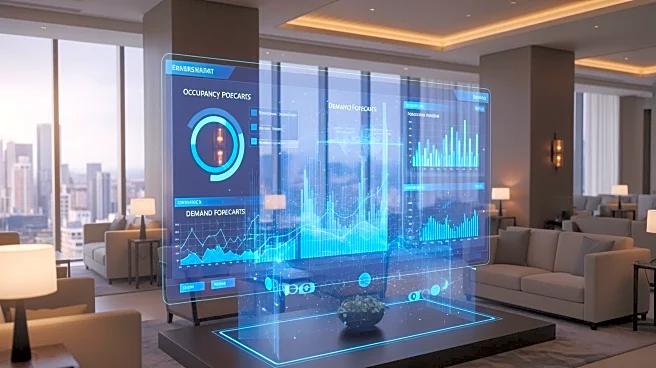What's Happening?
The hospitality industry is moving away from relying solely on historical data for demand forecasting, integrating forward-looking search data through predictive market intelligence solutions. This approach allows commercial teams to predict hotel demand more
effectively and further in advance, enabling efficient strategizing and profitable pricing. The shift to a hybrid forecasting framework combines historical performance metrics with real-time external market intelligence, providing a proactive advantage in aligning pricing, marketing, and distribution strategies.
Why It's Important?
The transition to predictive market intelligence is vital for the hospitality industry to remain competitive in a volatile market. By anticipating future demand, hotels can adjust pricing and marketing strategies proactively, securing market share and maximizing profitability. This approach reduces reliance on outdated historical data, which can hinder revenue performance by limiting the ability to respond to rapid changes in demand. The integration of real-time data provides the accuracy needed for confident decision-making.
What's Next?
Hotels are expected to continue adopting predictive market intelligence solutions, focusing on integrating real-time data sources to enhance forecasting accuracy. This will involve leveraging competitive dynamics and macroeconomic signals to refine pricing and marketing strategies. As the industry adapts to this new standard, hotels will likely explore additional ways to harness forward-looking data for improved commercial decision-making.
Beyond the Headlines
The shift to predictive analytics in hospitality raises questions about the balance between technology and human judgment in decision-making. As hotels rely more on data-driven insights, they must ensure that these tools complement rather than replace the expertise of their commercial teams.


















